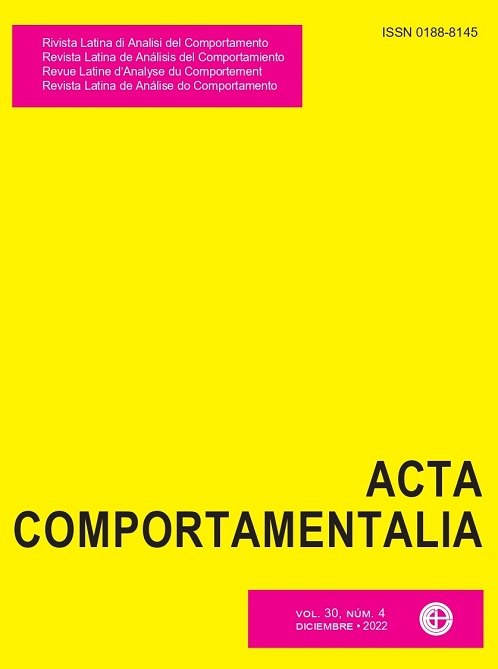A decision-making model for teaching behavior-analytic principles
DOI:
https://doi.org/10.32870/ac.v30i4.83977Keywords:
Behavior Analysis, stimulus classes, response classes, conceptual teaching, decision-making modelAbstract
In many higher education settings, a strong focus when training new behavior analysts is on foundational knowledge (i.e., behavior analytic concepts and principles). When considering foundational knowledge, people might highlight the importance of conceptual teaching. Conceptual teaching implies that students’ behavior must
be under the control of critical properties of each concept (and principle). The main purpose of this work was to present and discuss two decision-making models for choosing content, determining stimulus control, sequencing content presentation, and choosing teaching procedures (activities) when someone is to teach behavior analytic concepts and principles in higher education courses that aim at training teachers at the higher education level. The first decision-making model was comprised of six steps that started at a needs analysis and ended at a storyboard creation. The second model was derived from the application of the first-model steps, and students and colleagues’ suggestions. In this second model, nine steps were described with the addition of new readings, concept and principle reanalysis, changes to teaching procedures and activities, and redefinition of learning criteria.
Also, technology tests were conducted to find products that could support the programmed learning steps. Throughout the concept and principle analysis, questions regarding the consistency of critical features of behavior analytic concepts and principles were raised. The importance of conceptual learning to any professional starting in behavior analysis is discussed. In addition, we highlight conceptual
teaching as a process that needs more systematic analysis.
Downloads
Downloads
Published
How to Cite
Issue
Section
License

<a rel="license" href="http://creativecommons.org/licenses/by-nc-sa/4.0/"><img alt="Licencia de Creative Commons" style="border-width:0" src="https://i.creativecommons.org/l/by-nc-sa/4.0/88x31.png" /></a><br />Este obra está bajo una <a rel="license" href="http://creativecommons.org/licenses/by-nc-sa/4.0/">licencia de Creative Commons Reconocimiento-NoComercial-CompartirIgual 4.0 Internacional</a>.






